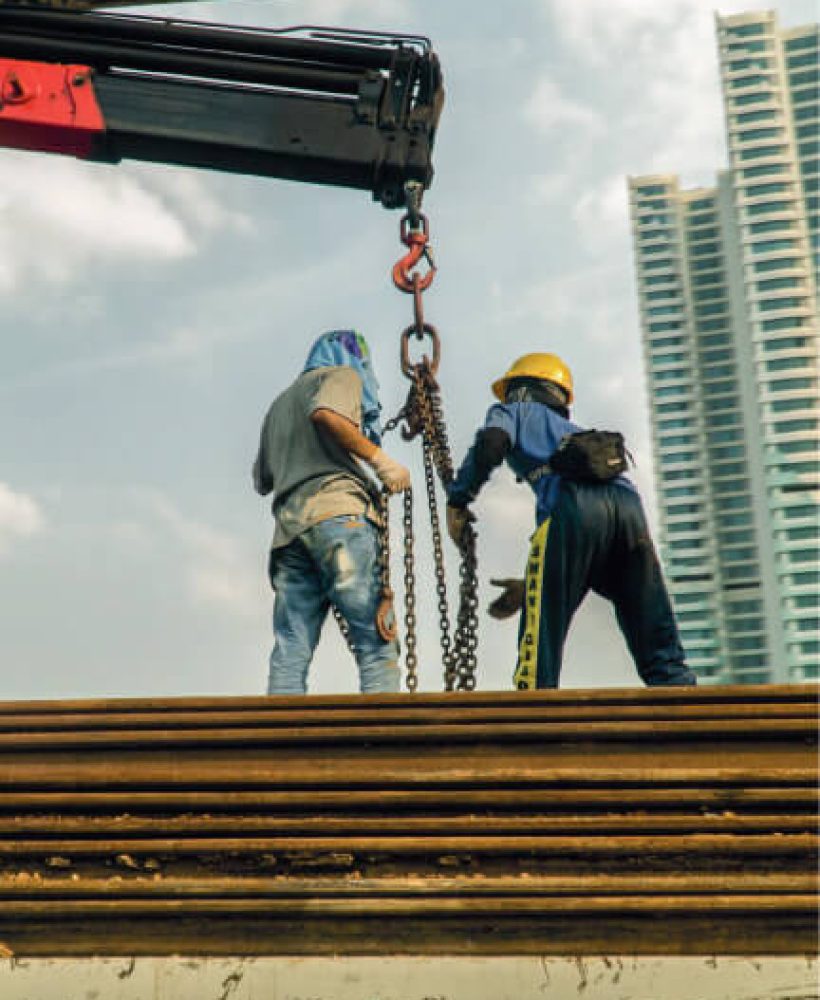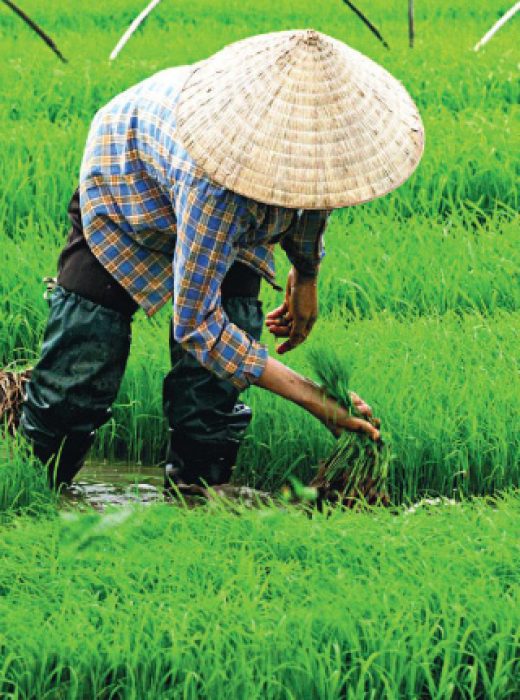1. AGRICULTURE
32% of its workforce is employed within the agricultural sector. Indonesia is the 3rd largest rice producer in the world. In addition, a significant amount of palm oil is produced as well. It has more than 7.7 million hectares of unprocessed soil available. However, there is low efficiency. There are certain amounts of spice and herbal product production in Indonesia. It is the second largest pepper (first white pepper) producer in the world after India and it produces around 100 thousand tons of pepper.
Apart from these, clove, coconut powder and cinnamon are among the spices produced within the country. Herbal products produced in the country include coconut, cashew, tea and exotic fruits. Important fruits grown in the country are orange, mango, pineapple, papaya and banana. Other fruits demanded in the domestic market are rambutan, guava, avocado, durian and sapodilla. Fruit production center is Java Island, and durian fruit is produced on Sumatra Island.
2. INDUSTRY
The manufacturing sector accounts for 23.4% of the gross domestic product. 13% of its workforce is employed in the manufacturing sector. Foreign investors have built several billion dollar oil refineries and a large steel mill in recent years. Automobile manufacturers have made significant investments in recent years. While an increase is observed in the number of middle income households, consumer spending is increasing and companies operating in consumption-based areas are expanding their activities.
3. MINING
Recent researches carried out in Indonesia has shown that the country’s mineral reserves are much richer than expected. The country has sources of coal, tin, copper, nickel, bauxite, gold, silver, iron ore, kaolin, marble, granite. Mining production is expected to develop in the long run. 20% of world nickel production and 10% of aluminum production are being carried out in Indonesia.
4. ENERGY
Its proven oil reserves are 3.6 billion barrels. Central Sumatra is the main oil production region of the country. The country also has 2.8 trillion cubic meters of proven natural gas reserves. Indonesia is also an important coal supplier. Most of its production is exported to China and India.
5. MARITIME
Although Indonesia is a land of islands, it has a small ocean fleet as well. Its ports that can attract large ships are limited. Many of the cargo is unloaded in Singapore and transported to Indonesia by small ships. Its largest general cargo port is Tanjung Priok, located in Jakarta, and other three major loading ports of the country are Belawan, Tanjung Perak and Ujung Pagang ports.
The largest general cargo port of the country is Tanjung Priok, located in Jakarta, and other three major loading ports of the country are Belawan, Tanjung Perak and Ujung Pagang. Among the other ports, Tanjung Perak carries out operations of 1,200,000 TEU. Belawan has a capacity of 200,000 TEU, Tanjung Emas (Semerang) 260,000 TEU, Makassar 177,000 TEU, Pontianak 93,000 TEU, and Panjang 76,000.
6. RETAIL
There are few importers in the retail sector of the country. The most challenging area for these companies is the distribution channels due to the geographical structure of the country. In recent years, internet retailing has been developing in Indonesia as well as all over the world. Investors should pay attention to the gap in this area. Turkish products are limited to a few products on supermarket shelves. On the other hand, shelf prices have been examined and it is evaluated that we have the opportunity to enter the market in many products. For example, it is considered that the market potential is high in products such as cherry, lemon, orange, grape and pomegranate, among the fresh fruit and vegetable products. It has been determined that there are up to 5-10 times price differences between the shelf prices in these products in Indonesia and the shelf prices in Turkey. Additionally, it has been evaluated that there is potential in the market for other products such as olive oil, pasta, dried fruits and diapers as well.
6. CONSTRUCTION
Indonesian contracting companies also operate in the Middle East and South-East Asian countries and they have a positive approach to cooperation with Turkish firms within the Middle East countries.
CONTRACTUAL RELATIONS BETWEEN TWO COUNTRIES
The need for housing and infrastructure construction and renovation in Indonesia will continue to increase in the upcoming periods as well. There is an intense demand in the country in this regard. Especially in the housing sector, experienced domestic companies operate and take advantage of cheap labor. The opportunity for Turkish firms to benefit from the Turkish workforce, in which they provide advantages in other countries, is limited. Construction and technical consultancy sector are the sectors in which foreign capital ownership is limited.
It is considered that Turkish companies may be effective on projects if they enter the market with financing opportunities such as country loans. It is expressed by professional organizations that there is a job opportunity for foreign contractors and technical consultancy companies in projects requiring high technology such as power plants and bridges.
Furthermore, the development of cooperation between Indonesian Contractors Association and National Association of Consultants and the equivalent organizations in our country will provide a connection between the companies of the two countries.






